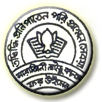
Md Ali Ahamed
DESIGNATION
Assistant Professor
Department of Philosophy
Biography
Md Ali Ahamed is presently working as an Assistant Professor of Philosophy in Sarojini Naidu College for Women, Kolkata. He has completed M.A. and M. Phil degrees from Jadavpur University. He received his graduation degree from Barasat Govt. College under the University of Calcutta. He has published a book Bharatiya Darshaner Parichay as a co-writer. He also presented some papers State, National and International Seminars. He served as an Assistant Professor of Philosophy in Nagar College, Murshidabad. He also served as a guest lecturer of Philosophy in Serampore Girls’ College, Hooghly and Jogesh Chandra Chaudhuri College, Kolkata.
Research
Research areas of Md Ali Ahamed are as follows:
- Philosophy of Mind: Traditional Indian Perspectives
- History of Western Philosophy – I (PHIACOR01T)
- Basic concepts of pre-Socratic philosophy:
Cosmology-origin (Ionian)
Being and change (Eliatics)
Process philosophy (Heraclitus)
The Sophists - Plato and Aristotle:
Plato’s Theory of knowledge (Episteme) and Opinion (Doxa) and its refutation by Aristotle.
Plato’s theory of Idea, Aristotle’s refutation,
Aristotle: Form and Matter. - Medieval Philosophy:
Reason, Faith, God—Augustine, Aquinas
- Basic concepts of pre-Socratic philosophy:
- Outlines of Indian Philosophy-I (PHIACOR03T)
Ᾱstika School
Nyāya system:
Four Pramāṇas:
Pratyakṣa pramāṇa: lakṣaṇa, classification into nirvikalpaka and savikalpaka (including pratyabhijñā) and laukika and alaukika.
Anumāna pramaṇa:
Laksaṇa, pakṣa, sādhya, hetu, vyāpti, vyāptigrahopāya, svārtha and parārthānumana.
Outlines of upamāna pramana and śabda pramāṇa.
Vaiśeṣika System:
The Basic outlines of dravya,guṇa, karma and detailed analysis of sāmānya,viśeṣa, samavāya and abhāva. paramāṇuvāda. - Western Ethics (PHIACOR07T)
- Introduction to Ethics—Definition, Scope, Presuppositions, Basic concepts of morality, moral problems, moral action. Object of moral judgment.
- Different types of ethical theories—Descriptivism vs Normativism and Prescriptivism;
Deontologism* , Teleologism** ,Naturalism, Naturalistic fallacy. - **Teleologism —Hedonism, Utilitarianism and its different types (with special reference to Mill and Bentham) —Act, Rule.
- Psychology and Philosophy of Mind (PHIACOR09T)
The Relation between body and Mind: Parallelism, Interactionism, Bundle theory, Double Aspect theory, Occassionalism, Emergentism, and Epiphenomenalism. - Classical Indian Text (PHIACOR10T)
Annaṁbhaṭṭa’s Tarkasaṁgrahaḥ with Dīpikā tika - Ethical and Social Philosophy of India (PHIACOR12T)
- Introduction: Special features of Indian Ethics as opposed to Western Ethics
- Basic Concepts with social significance in BhagavatGītā: Karmayoga, Sthitaprajña, Yogaksema and Lokasamgraha.
- Puruṣārtha—Concept of the four Puruṣārthas and their interrelation
- Sukhavāda—Cārvāka
- Dharma: Definition, Sādhāraṇadharma, Viśeṣadharma,Varṇadharma, Ᾱśramadharma, Svadharma
- Karma: Nitya, Naimittika, Kamya, Niṣkāma, Sancita, Sanciyaman and prarabdha.
- Concepts of Pañcaśīla, Brahmavihāra, Anuvrata, Mahāvrata, and Ahiṁsa.
- Some Modern Indian Thinkers (PHIACOR14T)
- Vivekananda—Practical Vedanta, Karma-yoga, Unification of Religions.
- Gandhi—Sarvodaya, Non-Violence and Trusteeship, Caste.
- Aurobindo—Evolution and Involution.
- Ambedkar—Caste: Equality and Fraternity.
- Logic (PHIHGEC01T/PHIGCOR01T)
- Basic concepts: Proposition, Categorical Proposition, Quality, Quantity of categorical Propositions, argument, truth, validity.
- Distribution of terms, Traditional Square of Oppositions, Conversion, Obversion and Contraposition. Categorical Proposition: Existential Import of Propositions, Boolean Interpretation of Categorical Propositions.
- Categorical syllogism: Figure, Mood, Rules for Validity, Testing the validity of arguments by Venn diagram.
- Inductive Logic: Mill’s methods of Experimental Inquiry.
- Western Epistemology and Metaphysics (PHIHGEC02T/PHIGCOR02T)
- Substance: Empiricist and Rationalist view of Substance.
- Causality: Entailment theory, Regularity Theory.
- Mind-body Problem: Interactionism, Parallelism, and Epiphenomenalism.
- The Philosophy of Self –Development (PHIGGEC01T)
- Buddhism- Caturāryasatya, Causality, Dvādaśa nidāna [bhava chakra] Aṣṭāṅgika Mārga.
- Yoga: —Citta, Cittabhūmi, Cittavṛtti, Cittavṛtti Nirodha, Aṣṭāṅgayoga.
- Gandhi- Non-violence, Truth.
- Critical Thinking (PHIGGEC02T)
- Media Ethics (PHISSEC01M)
- Business Ethics (PHISSEC02M)
Book Chapters
- Nyaya Vaisesika Darshane Sarirtottwa in Darshaanachintay Samaj O Naitikatha, published by 24by7 publishing. Article no. 20. page no. 175-181
- Administrative Committee: Admission Committee
- Academic Committee: Internal Examination Committee
- Student Welfare: Scholarship Committee, Health Committee and Minority Cell
 Pay Your Fees
Pay Your Fees 

